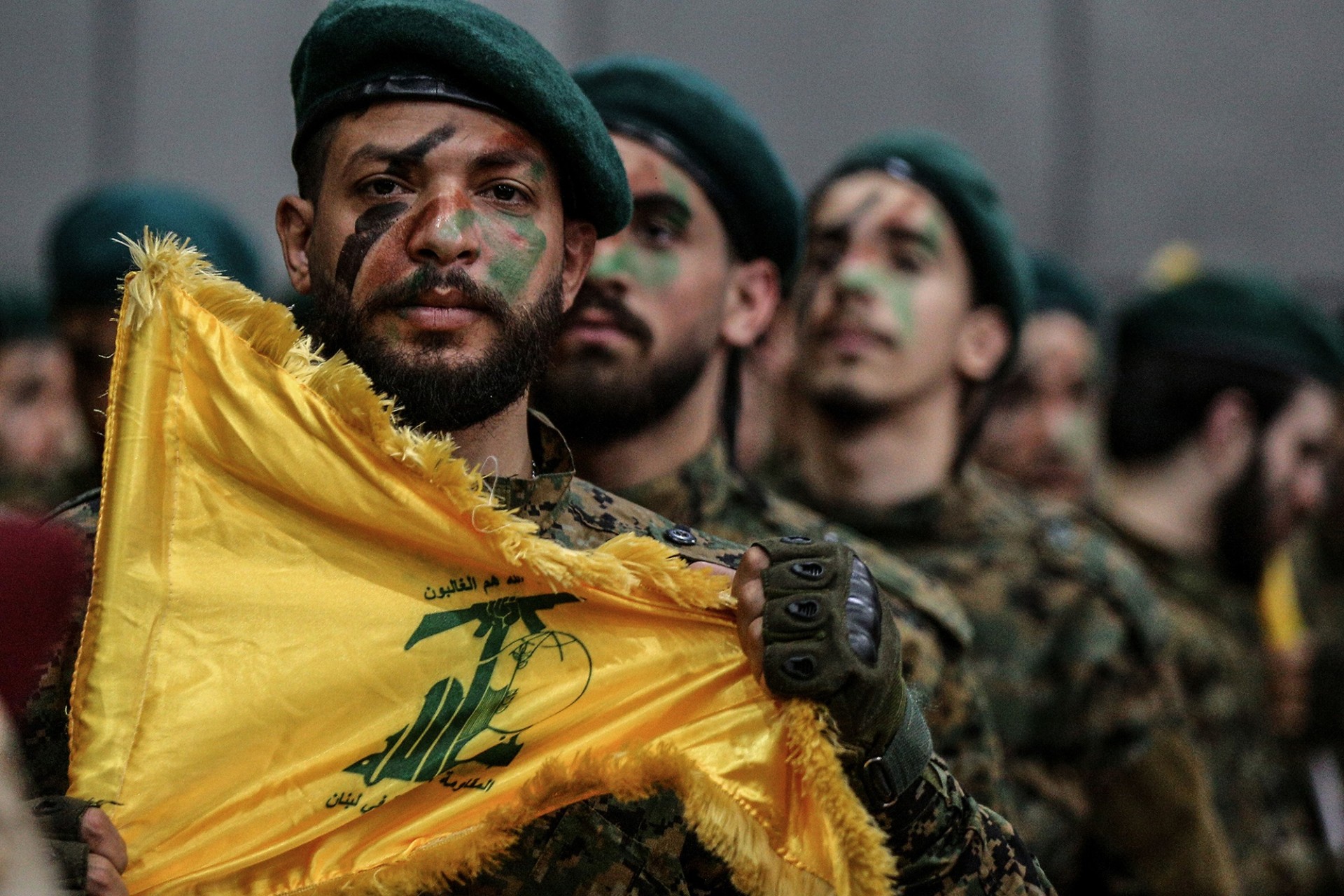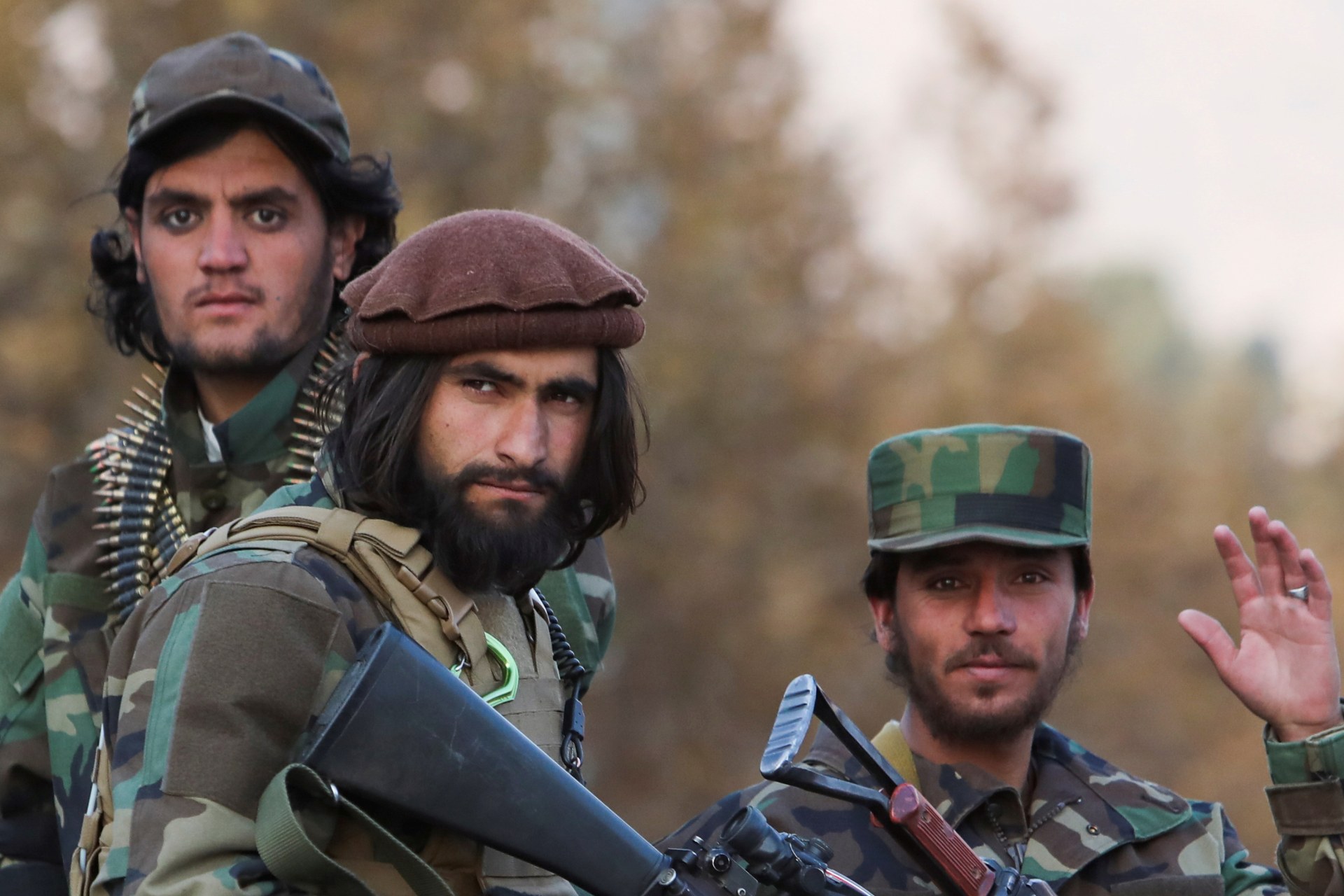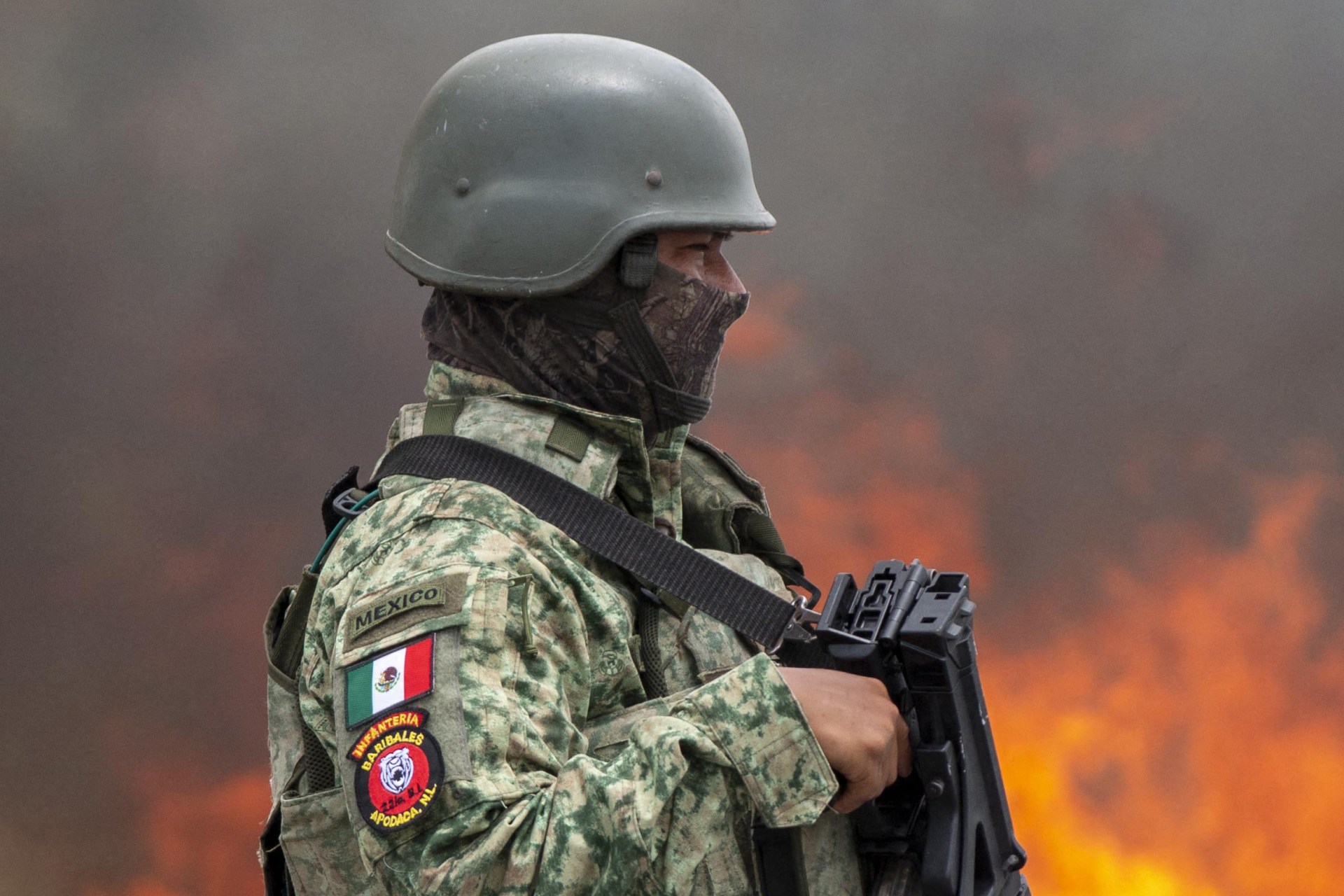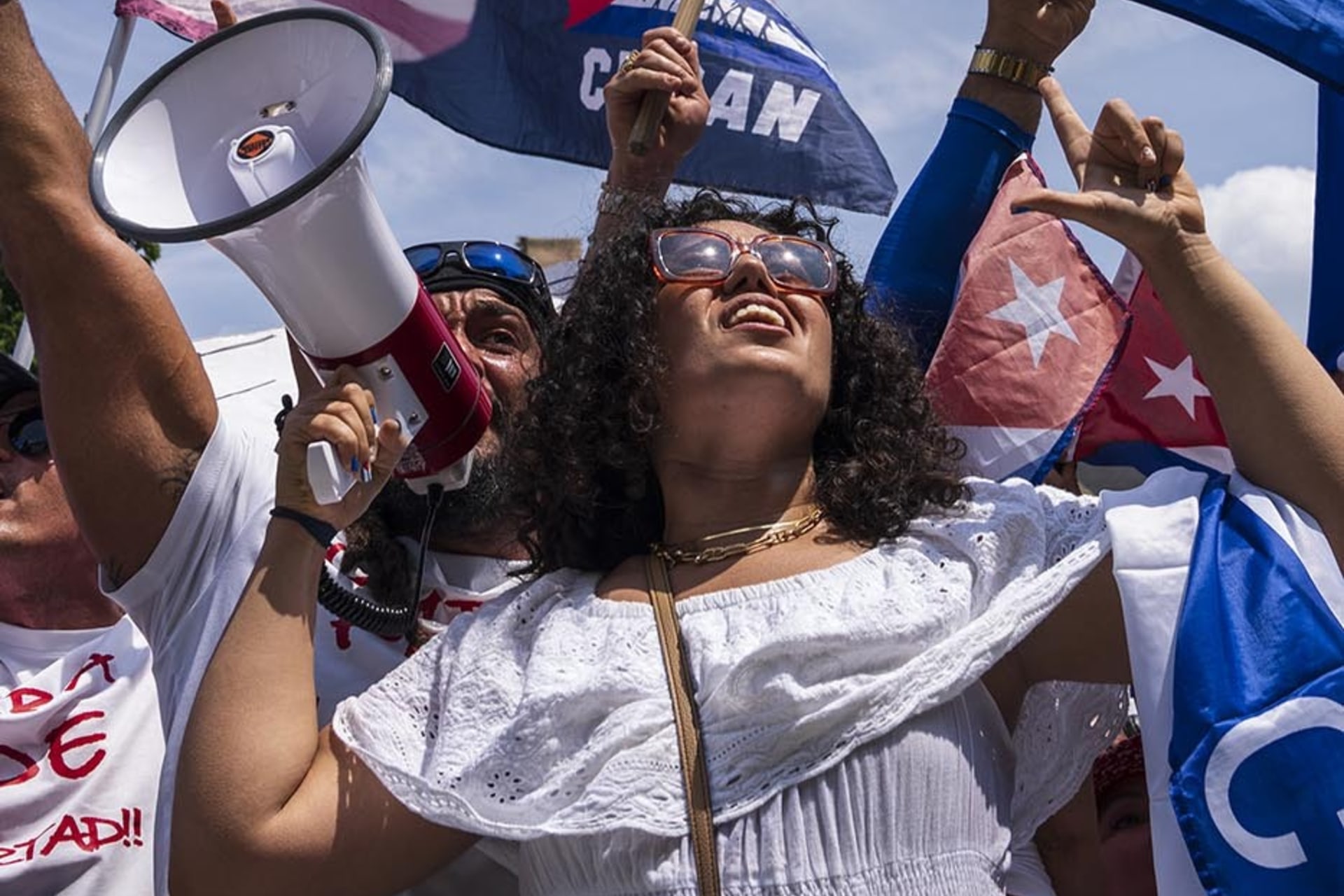Liberia’s Presidential Runoff
Published
This publication is now archived.
Who are the candidates in Liberia’s presidential runoff?
Liberia, the troubled West African nation founded by freed American slaves in 1820, holds a runoff election for its presidency November 8. The race features two candidates who “couldn’t be more different,” says Princeton Lyman, the Ralph Bunche senior fellow for Africa policy studies at the Council on Foreign Relations. They are:
- Ellen Johnson-Sirleaf, 66. Johnson-Sirleaf, an economist with a master’s degree in public administration from Harvard, is a grandmother of six who represents the older, established Liberian elite. She has held major international posts at the United Nations and the World Bank and served as finance minister of Liberia and vice president of Citicorp. She was jailed twice for speaking out against former president Samuel Doe, who held power from 1980 until 1989, when opposition leader Charles Taylor invaded the country and sparked a fourteen-year civil war that killed more than 200,000 people. Johnson-Sirleaf originally supported Taylor against Doe, then opposed Taylor’s increasingly autocratic rule. She ran for president in 1997, losing to Taylor in elections international observers said had been tainted by an atmosphere of intimidation. Taylor was forced from power in 2003 and went into exile in Nigeria. Johnson-Sirleaf’s Unity Party promises to use Liberia’s resources more efficiently, fight against corruption, attract international aid and investment, and restore agricultural and other industries damaged by nearly two decades of war. But opponents accuse her of being part of the group of politicians who led Liberia to ruin in the past and say that millions of Liberia’s young people, the majority of Liberia’s electorate, want a change.
George Manneh Oppong Weah, 39. Weah grew up in the Monrovia slum of Klaratown and dropped out of high school before becoming an international soccer star, representing his country in international matches and playing for European clubs like Chelsea, Paris St.-Germain, and AC Milan. As he prospered in his career, Weah became a philanthropist, funding aid programs, becoming a UN Children’s Fund (UNICEF) goodwill ambassador, and supporting programs to rehabilitate thousands of Liberia’s child soldiers. He was named world, African, and European footballer of the year in 1995. He has been captain, coach, and president of the Liberian national team, where he used his own money to finance his teammates’ airfares and bonuses. After he publicly supported UN involvement in Liberia, Charles Taylor had Weah’s house destroyed and two of his cousins raped. Afraid for his life, Weah lived in exile in Florida until Taylor was driven from power in 2003. Weah’s Jamaican-American wife and three children have stayed at their home in the United States to await the campaign results.
Weah owns radio and television stations in Liberia’s capital, Monrovia, and is massively popular with the youth disaffected by two decades of chaos and corruption. Sixty percent of the population is under the age of thirty, and great numbers of them voted for Weah and his Congress for Democratic Change Party in the election’s first round. “George Weah has captured a lot of the public’s imagination,” Lyman says. Opponents say he has neither the education nor the experience for the job, and worry he is surrounded by corrupt former politicians and elements still loyal to Charles Taylor.
What are the challenges facing Liberia’s next president?
They are massive. The country of three million has an unemployment rate of some 85 percent. Fewer than one in ten people can read. Most people live on less than $1 per day, and the average life expectancy is forty-seven years. Despite being rich in resources including diamonds, gold, and iron ore, Liberia is one of the poorest countries in the world. Previous governments looted hundreds of millions of dollars for their own benefit, leaving the country with no running water, electricity, public hospitals, decent roads, schools, or jobs. The new president will face three main challenges, experts say: providing basic health and education services, rebuilding infrastructure, and creating jobs. Experts say the people are clamoring for a change and are weary of war.
Has the country received international aid?
International donors have poured more than $1 billion into Liberia since 2003. But recent audits of the caretaker government of businessman Gyude Bryant, brought in after Taylor’s departure to run the country until elections this year, found the stealing of public funds had become endemic. In response, the European Union and United States—with support from the United Nations, African Union, and Economic Community of West African States (ECOWAS)—established a Governance and Economic Management Assistance Program (GEMAP) in Liberia. Under GEMAP, every important figure in the country’s government will be shadowed by a foreign expert. The expert’s countersignature is required to authorize any significant spending. The three-year program began in September and will be in effect when the new president’s government takes office in January 2006.
Who is in charge of security?
The 15,000-member United Nations Mission in Liberia (UNMIL), an international stabilization force under UN command. The UNMIL force includes peacekeepers redeployed from the UN’s long-term mission in neighboring Sierra Leone, whose ten-year war was declared over in January 2002. UNMIL and U.S. trainers have focused on building up Liberia’s own army and police forces, and experts say some progress has been made. But there is a long way to go before Liberians can be responsible for their own security, they say. “Whoever comes in will need help from the United States and the UN to fashion a new national army and disarm the factions,” Lyman says.
What is happening to Liberia’s child soldiers?
There are as many as 100,000 young fighters who served as Charles Taylor’s informal army, recruited to rape, pillage, and murder during the country’s 1989-96 civil war and afterwards. UNMIL has disarmed most of them, experts say, and there are some retraining programs available. However, those programs are limited, and there are few jobs to be found afterwards, and many of the fighters are now reportedly rejoining militias to fight in other places, like in the neighboring Ivory Coast.
Was the first round of the election successful?
Yes. The first round of the presidential vote, in which voters also chose candidates for the 30-member Senate and the 64-member House of Representatives, saw turnout of more than 70 percent of the country’s 1.3 million registered voters. International election monitors declared the poll free and fair, and appealed to the voters for a repeat experience Tuesday.
Will the two candidates be received differently by the international community?
Yes. Experts say Johnson-Sirleaf simply has more international credibility than Weah: “Ellen Johnson-Sirleaf will have immediate access to international agencies and funds,” Lyman says. “She’s a known entity. Weah will have to prove himself and show that he’s surrounded himself with good people.”
What happened to Charles Taylor?
After being forced into exile in 2003, Taylor now lives in Nigeria, which granted him political asylum. The terms of the asylum that Taylor accepted from Nigerian President Olusegun Obasanjo bar Taylor from interfering in Liberian politics, though many say this prohibition has been unsuccessful. In March, the UN-backed Special Court for Sierra Leone, a war crimes tribunal, indicted Taylor (Special Court for Sierra Leone indictment [PDF]) for his role in the conflict in Sierra Leone. In addition, he is accused of looting tens of millions of dollars from Liberia’s treasury. Nigerian observers and international observers alike have criticized Obasanjo for offering Taylor asylum, which they say offers him freedom from prosecution as long as he stays in Nigeria. Obasanjo has defended the offer, saying it was necessary to ensure Taylor’s resignation. International agencies and human rights groups have called for Taylor to be extradited to Sierra Leone to stand trial.t
Colophon
Staff Writers
- Esther Pan





